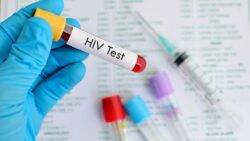After 20 months after interrupting antiretroviral therapy, HIV was undetectable in the patient’s blood.
A man known as the “Geneva patient” has become the latest person in the world to be cured of HIV after a stem cell transplant for cancer treatment.
While there have been five other known cases of people who have been cured of HIV – meaning they have been declared in long-term remission – his case is so far unique. He’s the only one who received stem cells from a donor who does not have a rare gene mutation – CCR5 – that blocks HIV from entering cells.
The other patients who were previously cured of HIV were in Berlin, London, D?sseldorf, New York, and at the medical centre City of Hope in California.
In 2018, the Geneva patient received a stem cell transplant to fight a form of a particularly aggressive form of leukemia. Despite the fact that the transplant wasn’t from someone carrying the CCR5 gene, the Geneva patient was still cured of HIV, with the virus being undetectable after he stopped antiretroviral therapy, which reduces the amount of HIV in the blood.
The Geneva patient has not been publicly identified, but we know he’s a white man who was diagnosed with HIV in 1990. In a statement, he said of the transplant: “What is happening to me is magnificent, magical.”
He had been on antiretrovirals until November 2021, when doctors told him to stop the therapy following his bone marrow transplant.
In two previous cases in Boston using “normal” stem cells, those that do not contain the CCR5 gene, HIV returned a few months after they stopped taking antiretrovirals.
While researchers aren’t completely sure yet that HIV won’t return in the Geneva patient, Asier Saez-Cirion, a scientist at France’s Pasteur Institute who presented the case in Brisbane, said that if there was still no sign of the virus after 12 months “the probability that it will be undetectable in the future increases significantly.”
According to Saez-Cirion, the Geneva patient might have remained HIV-free because “perhaps the transplant eliminated all the infected cells without the need for the famous mutation or maybe his immunosuppressive treatment, which was required after the transplant, played a role.”
Sharon Lewin, the president of the International AIDS Society holding the HIV science conference in Brisbane, said the case was “promising.”
“But we learned from the Boston patients that even a single particle of the virus can lead to HIV rebounding,” she added. “This particular individual will need to be watched closely over the next months and years.”
The bone marrow transplant undergone by the Geneva patient is a risky and brutal operation that cannot be considered as an option for all HIV patients, but rather as a last resort for those with life-threatening cancer and HIV.





